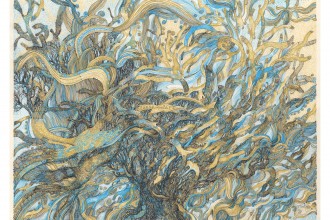But how then, did Regina turn “evil†despite her apparently gentle disposition as a young woman? The nature versus nurture debate continues. The anger and jealousy that drove Cora to use magic lies in Regina’s blood as well; though she makes the effort to be a better mother to Henry and redeem herself, for all her attempts to be “goodâ€, she lapses back into the darker part of her soul. Her darkest moment emerges only when Cora comes to Storybrooke. This is why mothers are central to Once Upon a Time; they define the moral compass of these characters. With Cora’s encouragement, Regina becomes more twisted and evil, whereas Emma is stronger with her mother around, and even seeks her own “happily ever after†when Henry’s father re-enters their lives.
One cannot deny the validity of anti-Disney criticism, which targets Disney Princesses as a source of hyper-sexualisation of young girls while pursuing the understandable claim of needing to water down these fables for children.
Indeed, the elusive happily ever after is a concept popularized by Disney cartoons, uncommon in the traditional children’s tales they were based on. In Hans Christian Anderson’s ‘
The Story of a Mother’, even though the mother’s love spurs her on to “rescue†her son from death, she eventually lets go of her child, seeing it as God’s will. In contemporary times, we see this narrative challenged more and more. Singer-songwriter Sara Bareilles stands out for her song “Fairytaleâ€, in which she describes what happened after the credits rolled; Cinderella and her prince were cheating on each other, Sleeping Beauty tires of her husband’s vociferous sexual appetite, and Rapunzel seeks a tower without windows. Elsewhere, artist and photographer Dina Goldstein recently put together a series of photographs portraying the “Disney Princesses†in more realistic, lifelike situations; Snow White and her prince have an unhappy home life, Belle has an addiction to cosmetic surgery, Cinderella spends her time in a bar, and Pocahontas becomes the stereotypical “cat ladyâ€. Only Jasmine foregoes the frivolities of love to follow her fierce and independent nature, becoming a Middle-Eastern warrior.  One cannot deny the validity of anti-Disney criticism, which targets Disney Princesses as a source of hyper-sexualisation of young girls while pursuing the understandable claim of needing to water down these fables for children. Be that as it may, feeding the happily ever after illusion to little girls is still problematic, and earning millions in revenue with a franchise that does immense harm to young girls is hardly laudable, and no less problematic than the original tales, which sought to reinforce the antiquated concept of feminine morality as the driving force of society. In fact, the oldest version of ‘
Sleeping Beauty’ has a king raping the princess, impregnating her in the process, but when she wakes up and finds out what happened, knowledge of her rape only makes her love the king more.
It’s difficult to categorize Once Upon a Time completely. Does it position itself in the battle of good versus evil? Yes, of course, but is there any merit in that? As much as I love the show, I can’t help but resent how it is skewed towards Emma, the “good†character who abandoned her son, and that the “evil†character is helpless and struggles to regain her son’s affection simply because she has the misfortune of being cast as the “Evil Queen.†The fact that biological connections are emphasized despite biological parents being the abandoners is a difficult concept to swallow, no matter how much you love the show. And while Regina attempts to seek redemption and reform, it seems that the gods (read: writers) of Once Upon a Time are not willing to allow her to break too far out of the “bad†mould. But while Once Upon a Time might be slightly problematic in terms of basic storytelling clichés, one must remember that, at the end of the day, it is a show revolving around mothers, with a Sleeping Beauty who’s in the process of rescuing her prince from his eternal sleep, and it does a good job of reclaiming the extremely sexist fairytale genre and its essentialist views of women.
Ghausia Rashid Salam is Assistant to the Editor-in-Chief and newly appointed Junior Articles Editor for the magazine. She resides on the Internet.
Continue Reading
← 1 2 3 View All




